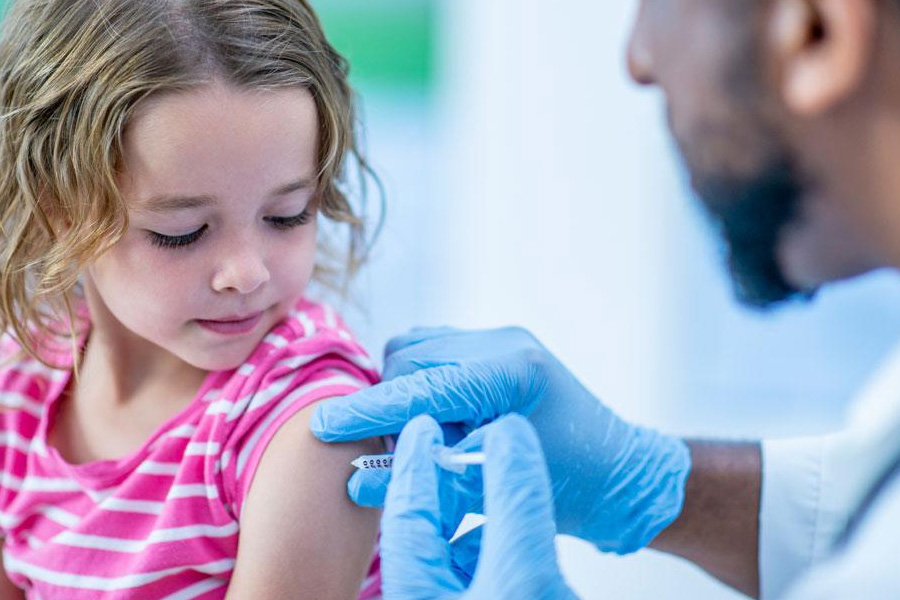The Ultimate Guide to Children’s Vaccination Schedules

Image Source: www.chla.org
Vaccinations protect a child against many serious diseases. As a parent or guardian, it’s very important to keep updated on vaccination schedules for your children. Detailed here is the importance of vaccination in a child, approved vaccination schedules, and useful tips to help in keeping your child protected. This handbook is designed to be informative and reader-friendly for any parent or Philippine healthcare decision-maker.
Why Children’s Vaccinations Matter
Children’s vaccinations protect children against diseases, avoid outbreaks of diseases inside communities, and serve as responders for public health. These vaccines have undergone rigorous tests for safety and efficacy to ensure that they protect as much as possible while exposing one to the least risks.
Understanding Vaccination Schedules:
Understanding vaccination schedules can be overwhelming at times, but this is one of the basic ways to keep your child healthy. Here is a breakdown of when your child will need vaccinations:
Birth to 6 Months:
- Hepatitis B: Given at birth, 1-2 months, and 6 months.
- DTaP (Diphtheria, Tetanus, Pertussis): Given at 2, 4, and 6 months.
- Hib (Haemophilus influenzae type b): Given at 2, 4 and 6 months.
- IPV (Inactivated Poliovirus): Given at 2, 4, and 6 months.
- PCV (Pneumococcal Conjugate Vaccine): This is given at 2, 4, and 6 months.
- Rotavirus: Administered at 2 and 4 months.
6 to 18 Months:
- Hepatitis B: The final dose is given at 6-18 months.
- DTaP: The fourth dose is given at 15-18 months.
- Hib: Booster at 12-15 months.
- IPV: The final dose is given at 6-18 months.
- PCV: Booster at 12-15 months.
- MMR (Measles, Mumps, Rubella): Given at 12-15 months.
- Varicella (Chickenpox): Administered at 12-15 months.
- Hepatitis A: Firstly, at 12-23 months, and the second, 6 months later.
4 to 6 Years:
- DTaP: Fifth dose.
- IPV: Final dose.
- MMR: Second dose.
- Varicella: Second dose.
11 to 12 Years:
- Tdap: Administered at 11-12 years.
- HPV (Human Papillomavirus): Given at 11-12 years.
- Meningococcal: Administered at 11-12 years with a booster at 16 years.
Benefits of Up-to-date Vaccinations
Staying up-to-date on recommended vaccinations has many advantages, including:
Protection:
Protects your child from serious and even life-threatening diseases.
Community Immunity:
It protects others who cannot get vaccines because of severe allergies or weakened immune systems.
Cost-Effective:
Avoids expensive treatments against vaccine-preventable diseases.
Peace of Mind:
Relieves you of anxiety pertaining to your child’s health and well-being.
Tips to Track Immunizations:
Keep Records:
Maintain a record of all the immunizations taken by your child, mentioning dates and vaccines.
Reminders:
Use a calendar, application, or reminders to notify you of upcoming vaccinations.
Consult Doctors Regularly:
Stay in touch with your child’s doctor so you remain updated about the upcoming vaccines.
Addressing Common Concerns and Misconceptions
The cursory concern and misapprehensions of the parents should be addressed regarding vaccination. Common myths debunked are as follows:
- Myth: Vaccines cause autism.
- Fact: Extensive research has shown no link between vaccines and autism.
- Myth: Natural immunity is more effective than that coming from vaccines.
- Fact: Vaccines provide safe immunity in comparison to exposing one to serious complications of diseases.
- Myth: Too many vaccines can overwhelm a child’s immune system.
- Fact: Children’s immune systems handle multiple vaccines safely and effectively.
Conclusion
Vaccinations are one of the important cornerstones that give assurance of good health to children. They safeguard them against a host of diseases. Keep your child healthy and safe by following recommended vaccination schedules. Keep accurate records, stay informed, and visit healthcare professionals regularly. Embrace the advantages that come with timely vaccinations, thus contributing to a healthier community.
For more information on Children’s Vaccinations, visit our dedicated service page. You can also explore related topics on our blog.
To be in the know and to act early—that is the single most important ingredient in your child’s good health. Let us work together to give all children protection.




